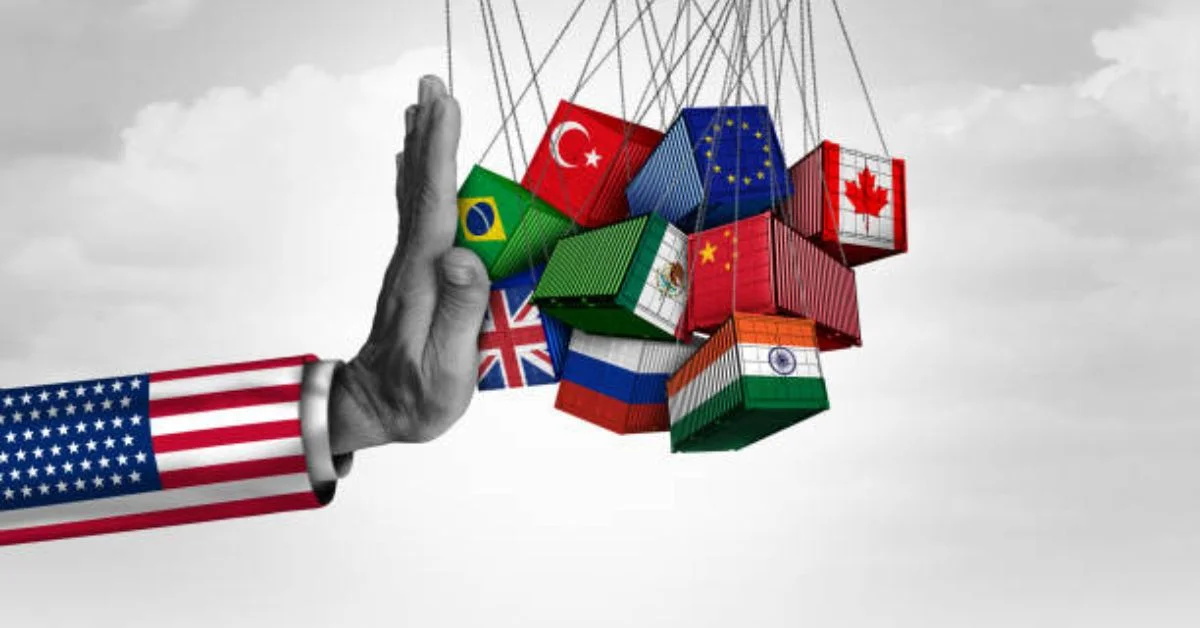
The word Cumhuritey carries deep historical, cultural, and philosophical undertones, as it is associated with the concept of republicanism, democracy, and the shared governance of people. Although it is a transliterated or adapted version of the more commonly known “Cumhuriyet” in Turkish (which directly translates to “Republic”), the word has also evolved in interpretation across different discussions of politics, sociology, and modern identity. To truly understand Cumhuritey, one must explore it not only as a linguistic artifact but also as an ideological construct that symbolizes freedom, self-determination, and the principle of rule by the people.
In this detailed article, we will examine the meaning of Cumhuritey, trace its roots in history, explore its philosophical foundations, evaluate its role in shaping modern governance, and analyze its impact on societies worldwide. We will also look at why the notion of Cumhuritey remains as relevant today as it was in the early 20th century when many nations adopted republican systems to replace monarchies or colonial administrations. Beyond governance, Cumhuritey has also become symbolic of national pride, civic responsibility, and collective participation in shaping the destiny of communities.
The Linguistic Roots of Cumhuritey
The term Cumhuritey derives from the Turkish word “Cumhuriyet”, itself stemming from the Arabic root “jumhūr”, meaning “public” or “the people.” The suffix “-iyet” in Turkish turns abstract concepts into nouns, giving it the meaning “Republic.” Thus, Cumhuriyet is literally the system of governance belonging to the people, governed by the people, and meant to serve the people.
In the adapted spelling “Cumhuritey,” the word carries the same conceptual weight but also represents a globalized interpretation, where the essence of republican values is not confined to one language or culture. It allows for a broader, more inclusive conversation about governance and civic duty across different cultural landscapes. The transformation of Cumhuriyet into Cumhuritey is more than just linguistic—it represents the adaptability of ideas across borders, emphasizing that democracy and republic are not bound by language but are universal aspirations.
Historical Emergence of Cumhuritey
The idea of Cumhuritey, as rooted in the concept of republicanism, gained prominence in the early 20th century. In Turkey, the collapse of the Ottoman Empire created a vacuum in governance that paved the way for the establishment of the Republic of Turkey in 1923 under the leadership of Mustafa Kemal Atatürk. This event marked the birth of the first secular republic in the Muslim world, introducing reforms that aligned governance with modern, civic, and democratic principles rather than monarchic or theocratic authority.
However, the idea of a republic is far older. From the Roman Republic, which thrived on citizen participation, to the American and French Revolutions that emphasized liberty, equality, and fraternity, the essence of Cumhuritey has been woven into the human struggle for self-rule. Its modern articulation in the Turkish context demonstrated that the idea could thrive even in regions where monarchy and empire had long been dominant. Cumhuritey thus became not just a political arrangement but a civilizational turning point, inspiring many nations in their pursuit of independence and modernization.
Philosophical Foundations of Cumhuritey
At its core, Cumhuritey represents the philosophical principle that sovereignty belongs to the people. This stands in stark contrast to monarchies, where sovereignty rests in the hands of a king, queen, or sultan, or dictatorships where power is monopolized by a ruling elite. The philosophy of Cumhuritey encompasses several key ideas:
- Equality of Citizens – Every individual within the republic has the same civic rights, regardless of class, gender, or ethnicity. This principle has been one of the most transformative aspects of republicanism, inspiring reforms in education, voting, and social justice.
- Popular Sovereignty – The legitimacy of government flows not from divine authority or hereditary rule but from the consent of the governed.
- Rule of Law – Cumhurtey emphasizes that no one, including rulers or government officials, is above the law. Legal frameworks ensure accountability, transparency, and fairness.
- Secular Governance – Particularly in the Turkish context, Cumhuritey also meant separating religion from politics to ensure that governance served all citizens equally.
- Civic Participation – Cumhurity calls on citizens not only to enjoy their rights but also to actively participate in governance through voting, community service, and constructive dialogue.
These philosophical underpinnings elevate Cumhuritey from a political system to a way of life, where citizens collectively assume responsibility for shaping their nation’s future.
Nation-Building
Nation-building has often relied on unifying principles that transcend tribal, regional, or religious divisions. Cumhuritey provided that unifying principle for nations transitioning from empire to modern states. In Turkey, for example, the establishment of Cumhuritey was accompanied by sweeping reforms in language, education, law, and gender equality. Turkish women, for instance, were granted the right to vote and run for office earlier than many European counterparts, signaling the transformative power of republican values.
Beyond Turkey, the idea of a republic inspired post-colonial nations in Asia, Africa, and the Middle East. For societies long ruled by colonial powers, the concept of Cumhuritey represented not only freedom from external domination but also the promise of inclusive governance. By embracing the republican model, these nations attempted to build institutions that could serve as foundations for independence, sovereignty, and prosperity.
The Symbolism of Cumhuritey in Civic Life
While Cumhuritey represents governance at a structural level, its true power lies in the symbolism it holds for ordinary citizens. National holidays such as Republic Day in Turkey, celebrated on October 29, are not just political commemorations but public affirmations of freedom and unity. Flags, parades, and public gatherings symbolize the bond between the people and their republic, reminding citizens that the nation is theirs to protect and nurture.
In civic life, Cumhuritey also symbolizes fairness and opportunity. Public institutions such as schools, hospitals, and courts are seen as embodiments of republican values—serving everyone without discrimination. Citizens often view Cumhuritey as a promise that their voices matter, their votes count, and their futures are secure within a framework of justice and equality.
Challenges to Cumhuritey in the Modern Era
Despite its lofty ideals, Cumhuritey has faced challenges in practice. These challenges often arise when leaders or political parties attempt to concentrate power, undermine checks and balances, or manipulate democratic processes. In some cases, populist movements exploit the very mechanisms of Cumhuritey to erode its foundations, leading to authoritarianism under the guise of democracy.
Additionally, global issues such as economic inequality, digital misinformation, and cultural polarization test the resilience of republican systems. When citizens lose faith in institutions, the fabric of Cumhuritey weakens, opening the door to apathy or extremism. Therefore, sustaining Cumhuritey requires constant vigilance, education, and active participation by citizens to protect democratic norms.
Global Democracy
Though rooted in the Turkish experience, the broader idea of Cumhuritey resonates with global democratic traditions. Nations across the world celebrate their own versions of republicanism, whether in the United States’ celebration of Independence Day, France’s Bastille Day, or India’s Republic Day. These celebrations, while culturally unique, embody the same spirit: the triumph of the people over arbitrary rule and the enduring value of self-governance.
Furthermore, international cooperation among republics often strengthens democratic ideals. Alliances based on shared values of liberty, equality, and civic responsibility create global solidarity. Cumhuritey, therefore, is not just a national identity but a contribution to the broader narrative of humanity’s pursuit of freedom.
The Relevance of Cumhuritey in Today’s World
In an age where technology, globalization, and migration redefine the boundaries of community, it remains highly relevant. It reminds us that even in complex societies, governance must be accountable to the people it serves. Social movements across the world—from calls for climate justice to campaigns against inequality—draw upon the spirit of republican ideals to demand transparency, fairness, and sustainability.
For younger generations, it serves as both a legacy and a responsibility. It is a legacy of those who fought for freedom, equality, and independence. At the same time, it is a responsibility to preserve these values for future generations. Through education, civic participation, and critical thinking, young people are tasked with keeping Cumhuritey alive and relevant in changing times.
Conclusion
Cumhuritey, whether understood in its Turkish origins or its broader global application, is more than a word. It is a living principle that has shaped nations, empowered citizens, and inspired movements for justice and freedom across centuries. Its philosophical foundation in equality, sovereignty, and civic duty makes it not only a political system but also a moral framework for society.
In today’s uncertain world, it stands as a reminder that the destiny of nations rests not in the hands of a few but in the collective will of their people. It is both a privilege and a duty to uphold the values of Cumhuritey, ensuring that the promise of freedom, justice, and equality remains alive for generations to come.
FAQs
1. What does Cumhuritey mean?
Cumhuritey, derived from the Turkish word “Cumhuriyet,” refers to a republic or governance system where sovereignty belongs to the people.
2. How is Cumhuritey different from monarchy?
Unlike monarchy, where power is inherited and centralized, it ensures sovereignty rests with the people through elections and civic participation.
3. Why is it important in history?
It marked the transition from empires and monarchies to modern, people-centered governance, symbolizing independence, equality, and national unity.
4. What values does Cumhurity represent?
Cumhurity embodies equality, popular sovereignty, rule of law, secularism, and active citizen participation in governance and civic life.
5. How is Cumhurity relevant today?
In a world facing inequality and political challenges, Cumhurity emphasizes accountability, transparency, and the enduring power of the people’s will.
For more information, click here.





